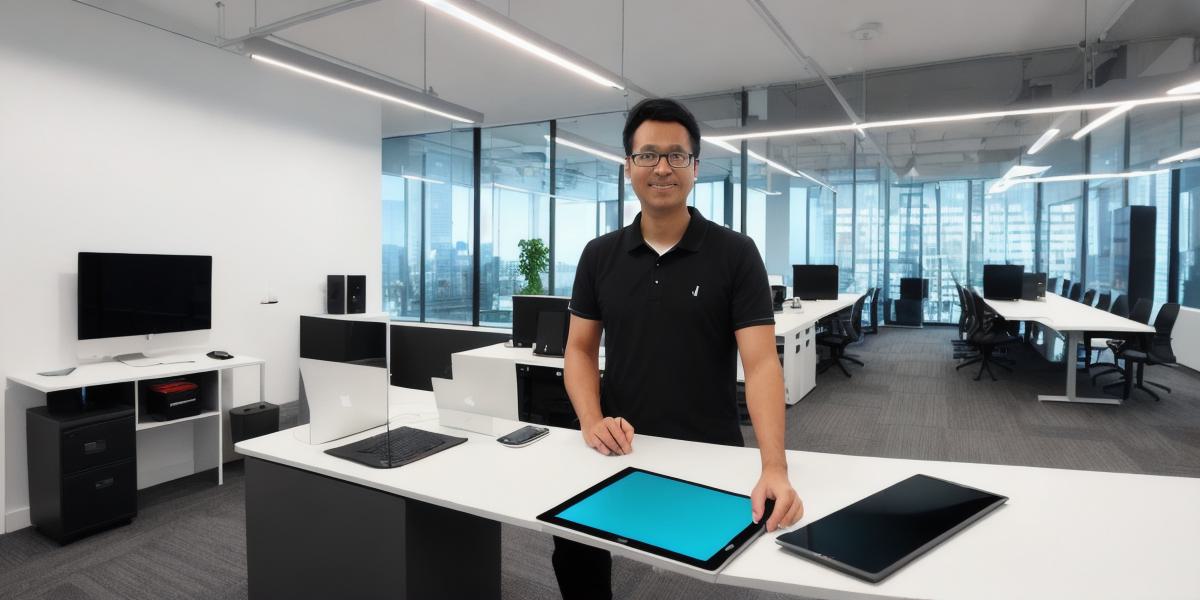Are you an experienced iOS developer looking to expand your skill set and transition into Android development? Look no further! In this comprehensive guide, we will explore the ins and outs of moving from iOS to Android development, including tips, tricks, and real-life examples to help you get started on your journey.
Firstly, let’s examine the differences between iOS and Android development. While both platforms are popular for creating mobile apps, they have distinct features and requirements that may require some adjustments in your development approach. For example, iOS is known for its sleek design and focus on user experience, while Android is more customizable and open-source, allowing for greater flexibility in app development.
One of the most significant challenges when transitioning from iOS to Android development is the learning curve associated with the new platform’s programming language, Java. However, don’t let this deter you! There are numerous resources available online to help you learn Java and become proficient in Android development. Additionally, there are many tools and frameworks available that can simplify the transition process, such as React Native and Xamarin.
Another important consideration when moving from iOS to Android development is the platform’s fragmentation. Unlike iOS, Android devices come in a wide variety of sizes, resolutions, and operating system versions. This means that you will need to be prepared to test your app on multiple devices to ensure compatibility across all platforms. However, this also provides an opportunity to reach a wider audience and gain more user experience insights.
Now that we’ve covered some of the challenges associated with transitioning from iOS to Android development, let’s look at some real-life examples of successful transitions. One popular example is the popular mobile game, Angry Birds. The original version was developed exclusively for iOS devices, but the developers later ported it to Android in 2010. Despite the challenges associated with developing for two platforms, Angry Birds quickly became a hit on both iOS and Android, reaching over 400 million downloads across all platforms.
Another example is the popular ride-sharing app, Uber. Originally developed exclusively for iOS devices, Uber launched an Android version in 2013. Despite initial challenges with the new platform’s programming language and fragmentation, Uber quickly became one of the most successful ride-sharing apps on both iOS and Android, with over 2 billion downloads across all platforms.

Finally, let’s consider some expert opinions on the subject. According to a recent survey conducted by Stack Overflow, Android developers are more likely to be open-minded and willing to learn new technologies compared to their iOS counterparts. Additionally, Android developers are more likely to be involved in the app development process from start to finish, including design and testing.
In conclusion, transitioning from iOS to Android development can be challenging, but with the right mindset and tools, it can also be a rewarding experience. By understanding the differences between the two platforms, embracing the learning curve associated with Java, and being prepared for fragmentation, you can successfully transition and develop apps for both iOS and Android devices. So what are you waiting for? Start your journey today!
FAQs:
- What are the main differences between iOS and Android development?
- iOS is known for its sleek design and focus on user experience, while Android is more customizable and open-source, allowing for greater flexibility in app development.
- What challenges can I expect when transitioning from iOS to Android development?
- The learning curve associated with Java, platform fragmentation, and compatibility issues across different devices are some of the main challenges you may encounter when transitioning from iOS to Android development.
